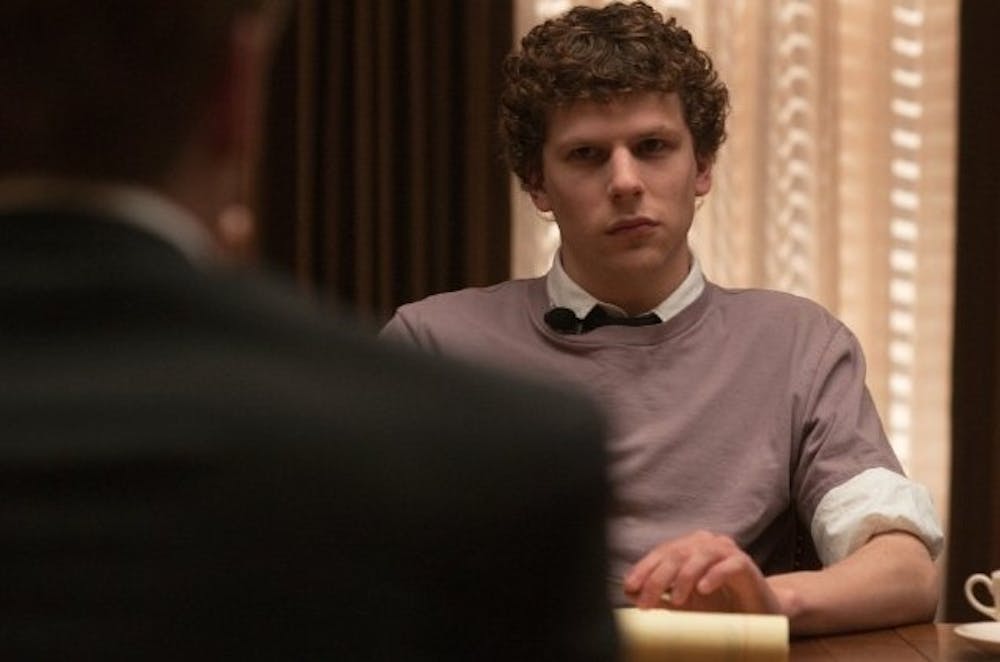Street sat down with Jesse Eisenberg and Aaron Sorkin to discuss interactive media, fencing and the real men behind the story.
JESSE EISENBERG
In The Social Network, Jesse Eisenberg is in many ways playing an extension of himself. “There’s a certain disengaged stare that you see in some of [Mark Zuckerberg’s] interviews, which is totally understandable,” says Eisenberg. “I have the same disengaged stare in interviews too, because it’s such an awkward thing.”
Like Zuckerberg, Eisenberg speaks in rhythmically accelerated beats that compensate for his nervousness. To occupy his shaking hands, he rips off pieces of his cocktail napkin and rolls them into little balls beneath the table.
But while Zuckerberg is arrogant on screen, Eisenberg is reserved and polite. His responses are sharp and intelligent, indicative of the months he has spent immersing himself in his role. He takes his craft seriously and worked hard to capture the Facebook founder’s odd persona. For example, he watched YouTube clips of Zuckerberg and listened to his voice on his iPod. He even took fencing lessons, because Zuckerberg was on his high school’s team. “He has a unique posture, so I thought it was probably derived from his fencing,” Eisenberg explains.
His role in The Social Network is a departure from the likable innocents he has played in films such as The Squid and the Whale and Adventureland. But Eisenberg’s approach remains the same: he always views his character as the hero. “My job as the actor playing Zuckerberg was to defend him everyday. When we do things we may regret later, we have a reason, even if we are drunk or not in a clear mind. For me it was always clear why he was acting the way he was acting, even if it hurt some of the other characters.”
AARON SORKIN Aaron Sorkin’s script for The Social Network is permeated by rapid-fire exchanges and sparkling wit. That same charm marks Sorkin’s casual speech, which in itself could be mistaken for a dialogue from one of his projects.
Sorkin, known mostly for political works such as A Few Good Men and Charlie Wilson’s War, has a love of words that transcends the pages of a screenplay. Sorkin is personable and droll, engaging everyone in the room with his outgoing persona and easily captivating undivided attention. His responses to questions are coolly epigrammatic and endlessly quotable.
For example, does he use Facebook?:
“I’d heard of it the way I’d heard of a carburetor, but I can’t open up the hood of my car and point to it and tell you what it does. What drew me to it was it seemed to me that in this story were themes that were as old as storytelling itself: friendship, loyalty, betrayal, jealousy, class. These are things that Aeschylus would have written about or Shakespeare or Paddy Chayefsky. And luckily for me, none of those guys were available, so I got to do it.”
It’s hard not to like Sorkin, though he has likely earned one enemy throughout The Social Network’s production: Mark Zuckerberg. Though the two may not be meeting up for dinner any time soon, Sorkin holds no ill will.
“Would any of us want a movie made about the things we did when we were 19 years old? I wouldn’t blame him if he made a dartboard out of my face.”

